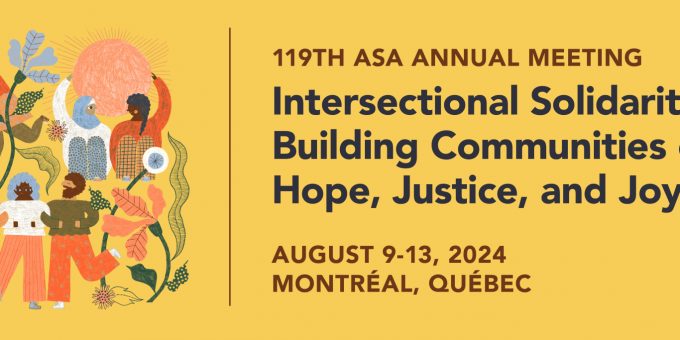
Public Practice and the Origins of Sociology: New Thoughts on an Old Issue
As sociology faculty nationwide counted down the days to winter break, heated debate again erupted on Academic Twitter (ahem, X). The point of contention? Praxis-oriented, justice-focused sociology. The debate was sparked by the 2024 American Sociological Association (ASA) conference theme: “Intersectional Solidarities: Building Communities of Hope, Justice, and Joy.” The prevailing dissent centered around the belief that the conference theme represented a departure from traditional “scientific” sociology, with critics arguing that the connection between theory and practice was overly political and non-scientific.
These arguments are nothing new to the ASA. Just a few years ago, Mary Romero’s 2020 presidential address ignited a similar surge of debate over her call for a social justice-oriented sociology. Back in the early 2000s, Michael Burawoy famously advocated for a renewed focus on public sociology in his 2004 presidential address. Yet, the roots of this controversy in mainstream sociology predate even Burawoy’s address, dating back to 1988, when Herbert Gans coined the phrase “public sociology” in his presidential address.
Opponents of justice-focused public sociology, such as Jonathan Turner, argue that sociologists should stay in their ivory lanes, claiming that advocacy and activism are unnecessary political perversions of the discipline. Such critics tend to frame the issue as a disciplinary divide. On one side are rational scientists (themselves) who practice reason and adhere to the objective foundations of the discipline. On the other are the political activists who use sociology to add a veneer of legitimacy to their policy agendas.Is this framing justified?
The historical record challenges the claim that “traditional” sociology is objective and non-political. Foundational theorists, including Karl Marx, Emile Durkheim, and Max Weber all recognized sociology’s potential to impact society. Marx emphasized the need to not just interpret but change the world, while Durkheim posited that sociology should inform a society’s morality. Even Weber recognized sociology’s role in the public sphere (although he maintained that sociologists’ political work outside of the classroom should not lead to political indoctrination in the classroom).
Sociology has never been apolitical. Although the term “public sociology” is typically applied to scholarship with progressive political goals, sociological research has a history of being used to inform policies with distinctly anti-progressive aims, such as rationalizing the racial status quo of White supremacy. Prominent sociologists, including Patrick Moynihan and George Fitzhugh, developed and practiced a style of sociology that reinforced racist public policy. This is evident in Fitzhugh’s public advocacy against the abolitionist movement and Moynihan’s infamous “Negro Family” report (in which he argued that Black family structure was the cause of Black poverty). Ironically, such scholarship has often been construed as scientific, rational, and devoid of political bias.
An alternative tradition of public-facing sociology, often referred to as Black Sociology, emerged among marginalized scholars at southern and Black universities. Scholar activists at the Atlanta Sociological Laboratory, including W.E.B. Du Bois and Augustus Granville Dill, used sociology to intervene in sociopolitical struggles and challenge prevailing racial prejudices. This tradition aimed to spread awareness of scientific findings that challenged racial biases and advocated for policy changes based on these findings.
While the debate surrounding the 2024 ASA conference theme highlights the long-standing tension between scientific objectivity and public engagement within sociology, it’s crucial to recognize that sociology has never been apolitical, and its potential to inform social change should be celebrated, not undermined. Sociology can strengthen scientific frameworks across disciplines by uncovering hidden ideologies and politics in all scientific activities. Embracing the intersection of sociology and public engagement is not a perversion of the discipline; it’s a continuation of its historical tradition.Marcus A. Brooks is in the Department of Sociology and Criminology at Western Kentucky State University. His work examines how the laundering and mainstreaming of reactionary racist rhetoric in the media, and especially social media, influences public understanding about race and racism.

Comments 1
Claude Fischer
February 7, 2024Brooks confuses the issue. It is not a matter of whether good sociology can enlighten and enable political work. That purpose was inherent in American sociology since the 19th century. The issue is whether— as sociologists—we try to neutrally use evidence to guide our political pronouncements or we prioritize our ideologies and personal commitments in our public sociology.